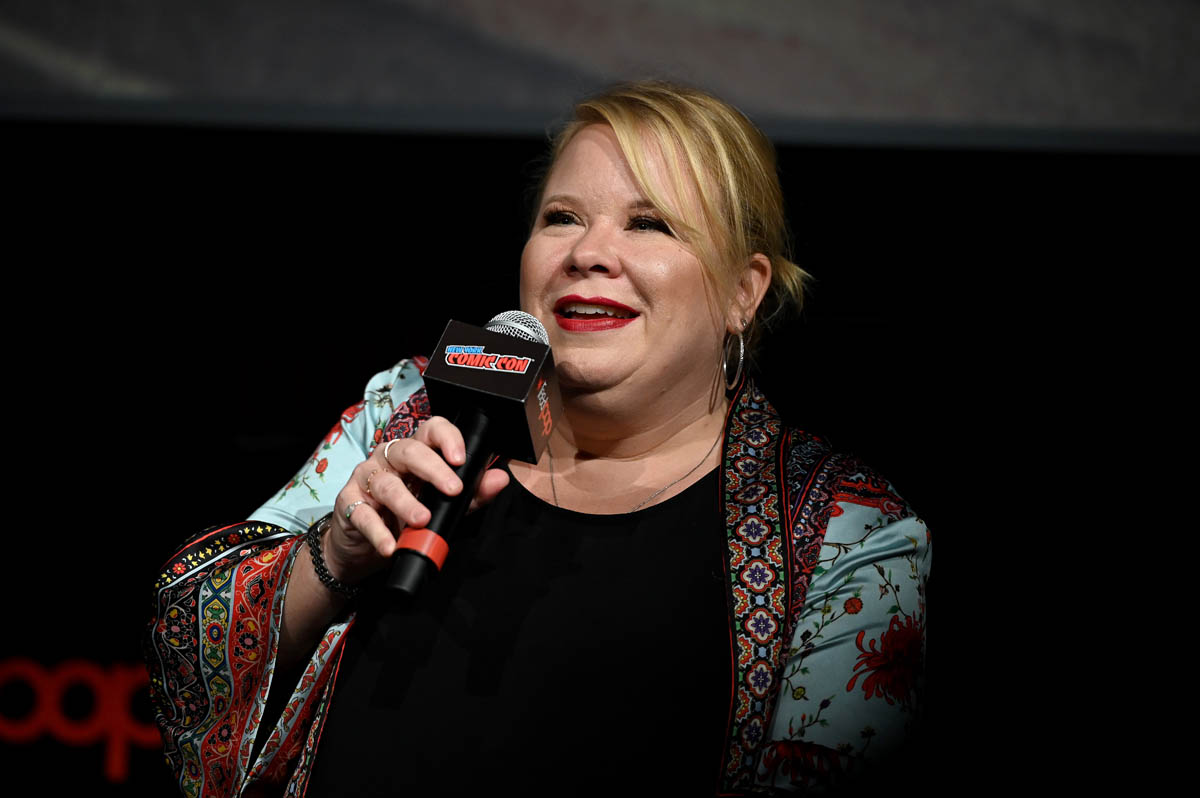Intro for May 16, 2022



Dear Gossips,
In recent times, much attention has been paid to how bonkers the film industry is, but don’t worry, the television industry is catastrophic, too. They’re just better at covering it because there’s so much freaking TV available all the time it can be hard to spot the trouble spots, like a pothole covered by snow in winter. But the television upfronts, the biannual meeting of television executives, advertisers, and media, are happening right now and the networks are announcing their pickups and cancellations for the upcoming 2022-23 season, and wouldn’t you know it? It’s a bloodletting. Just an old-fashioned bear mauling. A slaughter of Biblical proportions, if you will. Shows are getting cancelled left, right, and center, as the Mack truck of television hits the pothole of the streaming age and now the road’s a mess. I’ve lost control of this metaphor.
Julie Plec, the producer behind shows like The Vampire Diaries and its spin-offs, The Originals and Legacies, as well as the Roswell reboot, Roswell, New Mexico, and The Endgame, a freshman drama on NBC, has had a terrible upfront season. She had three shows axed across two networks: Legacies and Roswell, New Mexico on The CW, and The Endgame on NBC. She called it the “Red Wedding”:
It’s the Red Wedding at WBTV/CW today. Much more to say, but not today.
— Julie Plec (@julieplec) May 12, 2022
Loads of gratitude coming for fans and cast and crew in future tweets. But today, we mourn.
The bloodletting isn’t limited to The CW—though their cancellations also include Legends of Tomorrow, Batwoman, Naomi, Dynasty, Charmed, In The Dark, and 4400—as CBS tanked the reboot of Magnum P.I. and two Chuck Lorre sitcoms, The United States of Al and B Positive. I’m not going to defend either of those shows as worthy, they’re not, but Chuck Lorre is the king of the sitcom. Cancelling TWO of his shows in one season is virtually unheard of. NBC also cancelled sitcoms Mr. Mayor, starring Ted Danson, and Kenan, the eponymous show of SNL stalwart Kenan Thompson. ABC, however, renewed everything, though Black-ish ended after eight seasons.
The temptation is to say that broadcast is dead, especially in the face of such sweeping cuts, but that’s not quite true. Yellowstone continues to be a huge hit, still growing its audience after four seasons, and though NBC hasn’t found a comedy to fill the shoes left by Parks & Rec and The Good Place, Abbott Elementary is a breakout hit on ABC, and CBS has had some luck with Ghosts (the original British version is WAY better, but I do love to see Utkarsh Ambudkar thriving). What IS happening, is that streaming and mergers, the bane of the film industry’s existence at present, is having a similar upsetting effect on television.
Take The CW. It was once a loss leader for its co-owners, Viacom (CBS) and Warner Brothers. They’d eat sh-t on the network ad rates, but they RAKED in money on syndication and, later, streaming licensing. Supernatural, for instance, printed money for The CW, which is why they kept renewing it as long as stars Jensen Ackles and Jared Padelecki were willing to keep working. But as streaming developed, two things happened. One, syndication took a hit because streaming meant titles were available through the app, rather than via local broadcast deals. Geoblocking was utilized to combat this to an extent, but there’s a reason show seasons and episode orders got shorter after the advent of streaming. Reaching the mythical 100 episodes for syndication no longer mattered so much when networks could license their shows to streaming platforms right away.
And that’s the second thing that happened—everyone built their own streaming platform. Rather than licensing a show to a streamer, networks now want to kick the content back to their parent companies, to go on their proprietary platforms (I hate every word of this sentence SO MUCH). That’s the problem with The CW now, it has two parent companies, each with a rival streaming platform. One wonders how long the network will even survive, especially once they start pulling stuff like Riverdale and Supernatural off Netflix and divvying it up for Paramount+ and HBO Max. Broadcast television isn’t dead, but it’s clear television is experiencing the same turbulence as film.
There’s a lot of uncertainty, shows have much shorter shelf lives, and ultimately, all of this is happening to feed the greedy maw of streaming, of which future no one is clear. What IS clear is that streaming isn’t a replacement for television as we knew it. Streaming came along and looked like a revolution, but we’ve just reinvented cable but with a million passwords instead of a million channels, and it costs just as much as cable, if you subscribe to all the major platforms. In the process, we’ve left the film industry to drag itself out of the content river like a half-drowned wreck, and television is only barely doing better. The technology exists, we’re never going back to pre-streaming days, but we have got to find a way forward that supports a robust film and television industry, and end this cycle of cancellation and chaos.
Live long and gossip,
Sarah

